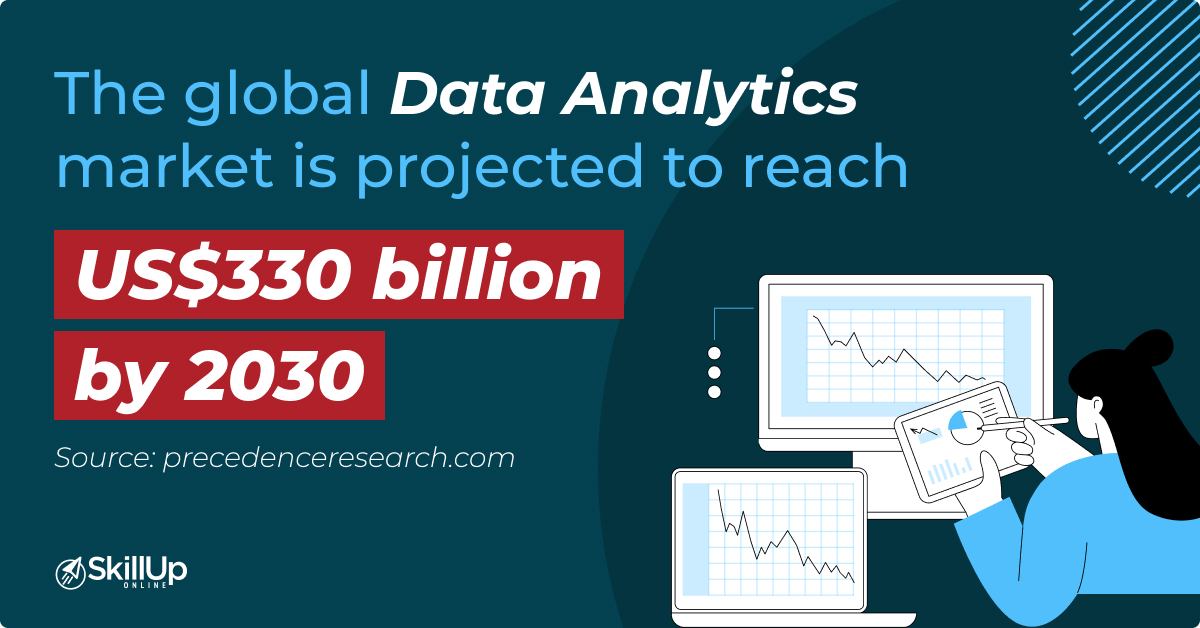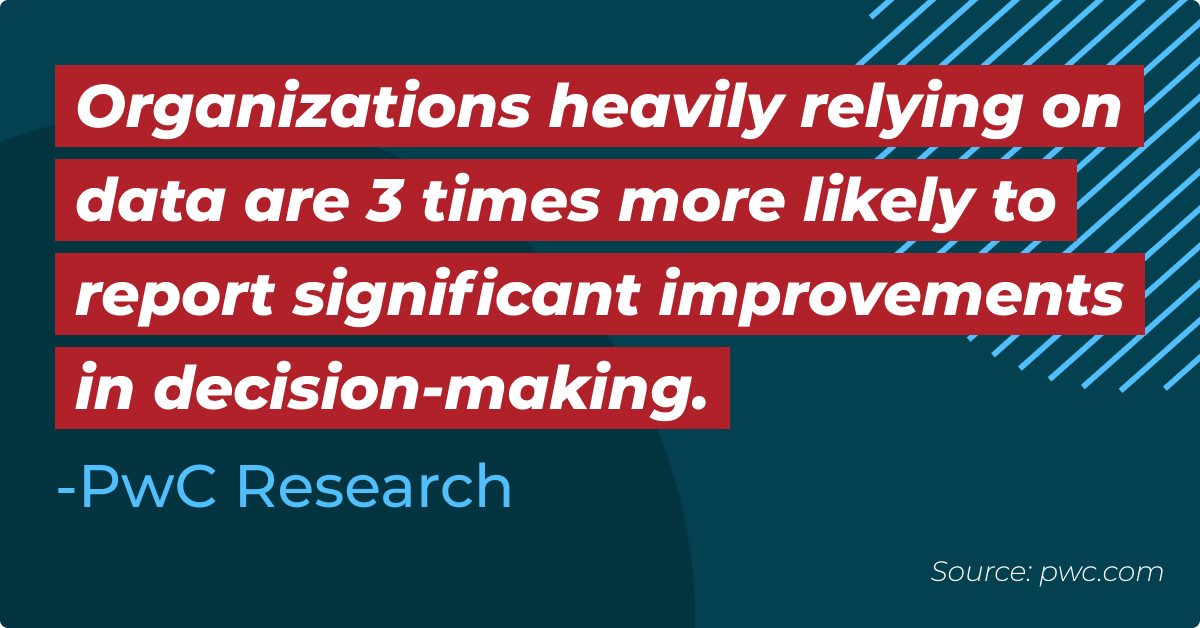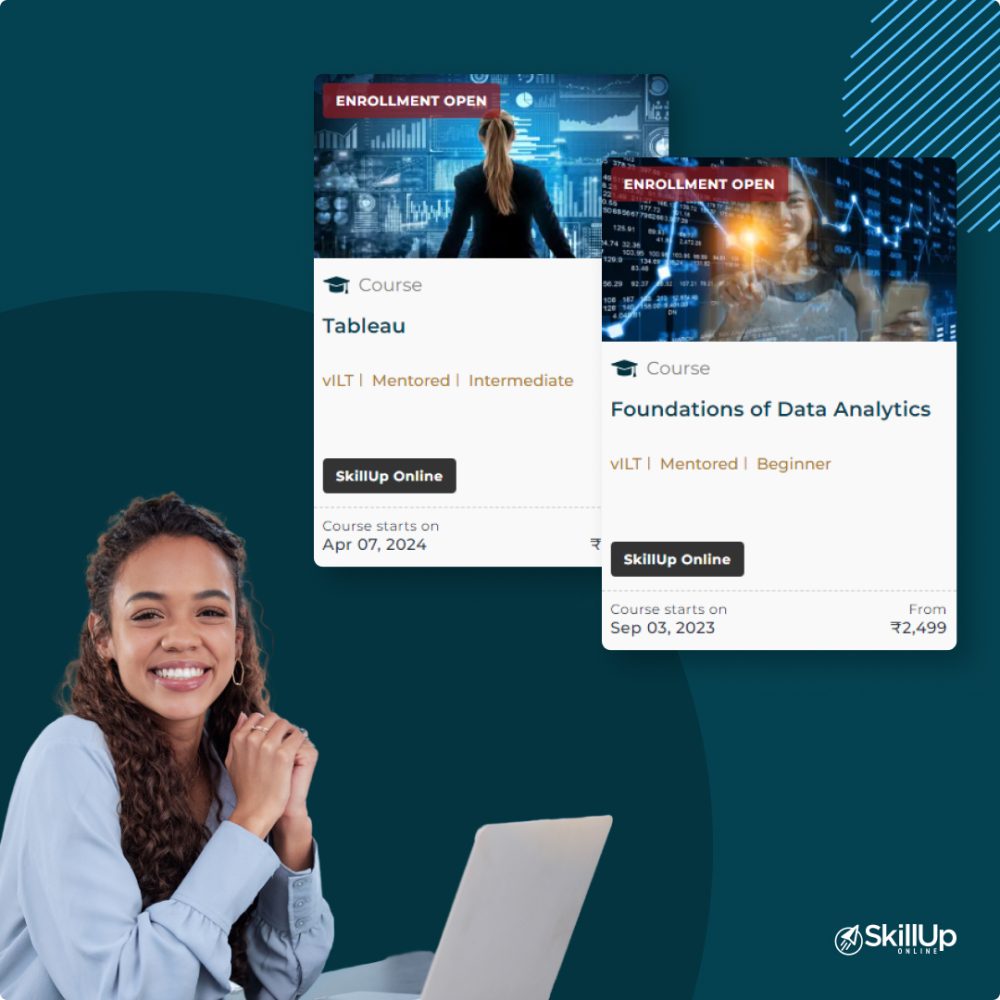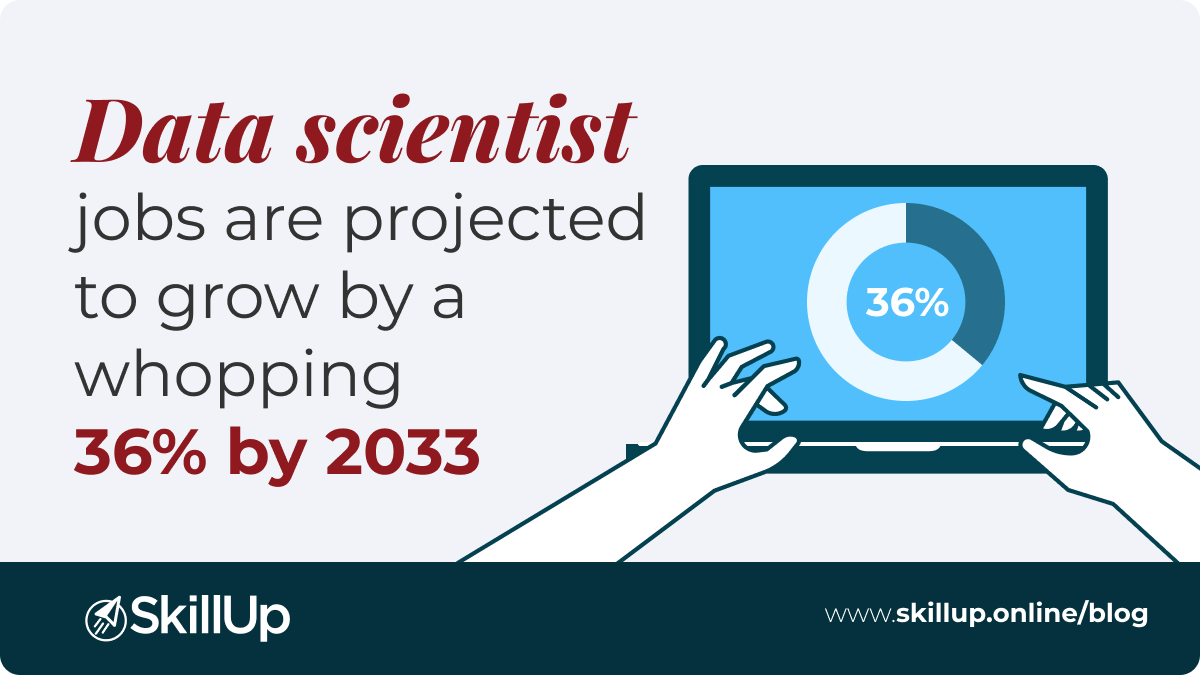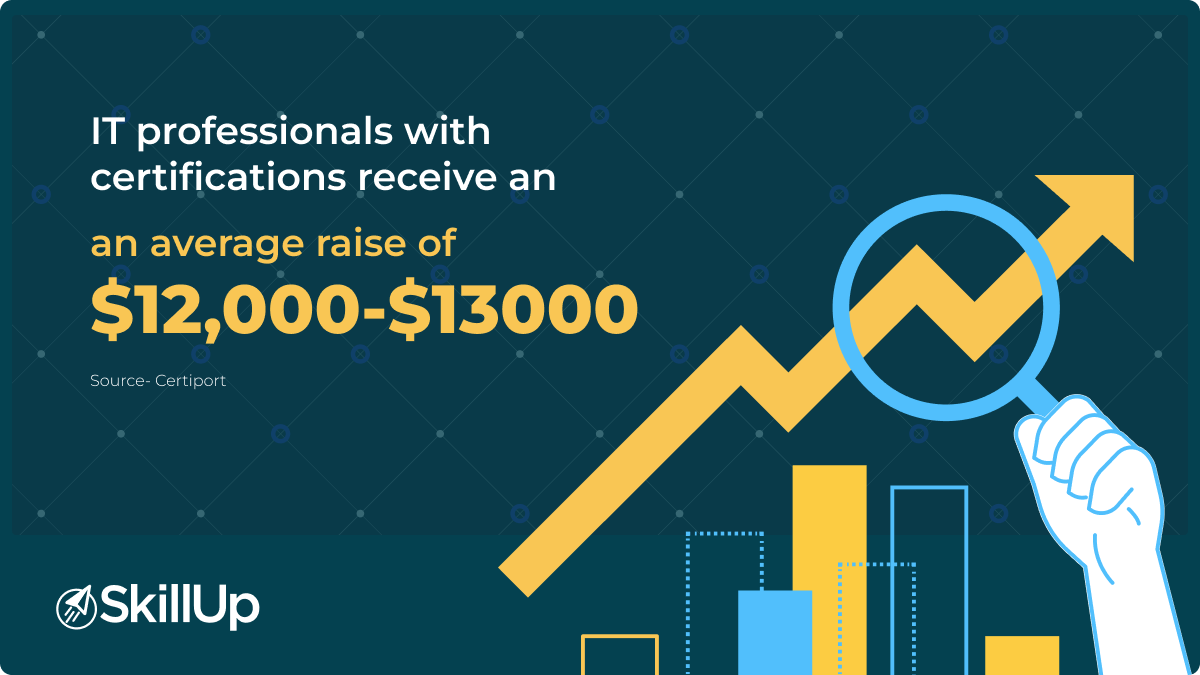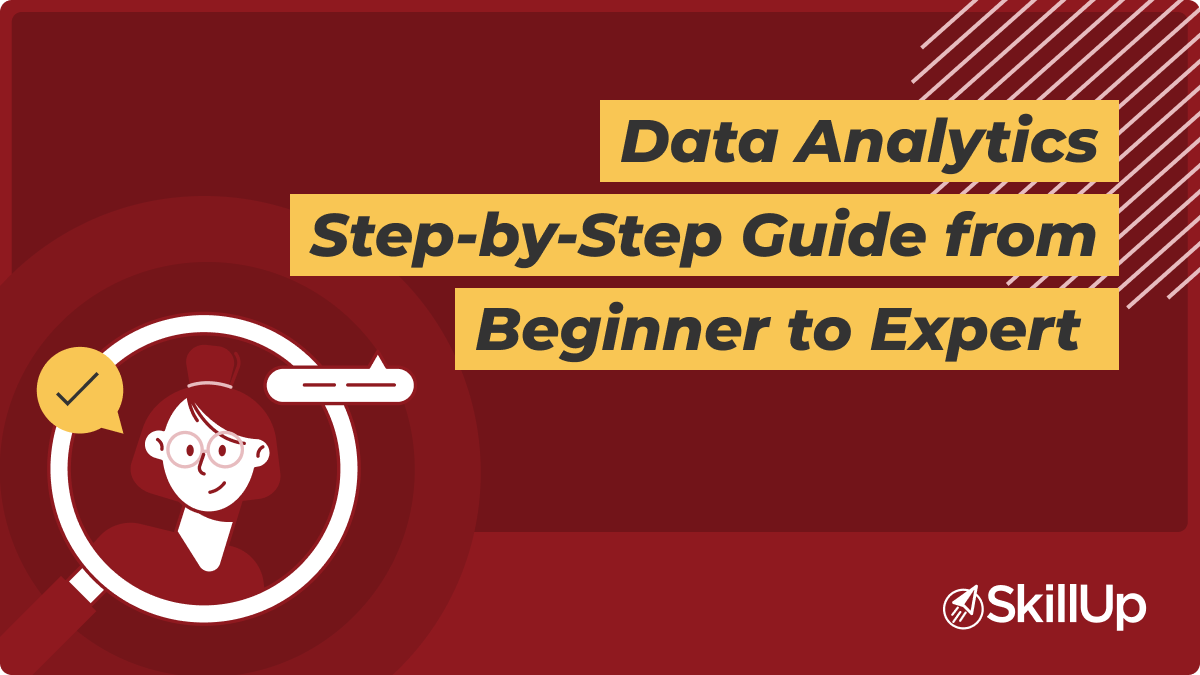In today’s fast-paced and data-driven world, businesses are constantly seeking new ways to gain a competitive edge. As the volume of information continues to grow exponentially, professionals are turning to data analytics as a powerful tool to uncover valuable insights and make informed decisions. The ability to effectively harness data has therefore become a crucial skillset for professionals across industries, enabling businesses to drive strategic initiatives, enhance operational efficiency, and ultimately, propel organizational success.
In fact, according to PwC research, organizations heavily relying on data are 3 times more likely to report significant improvements in decision-making. And, as data increasingly plays an important role, the demand for data professionals has also been skyrocketing; a fact borne out by a recent stat by The US Bureau of Labor Statistics, which predicts that job openings for analysts will grow by 23% between 2021 and 2031.
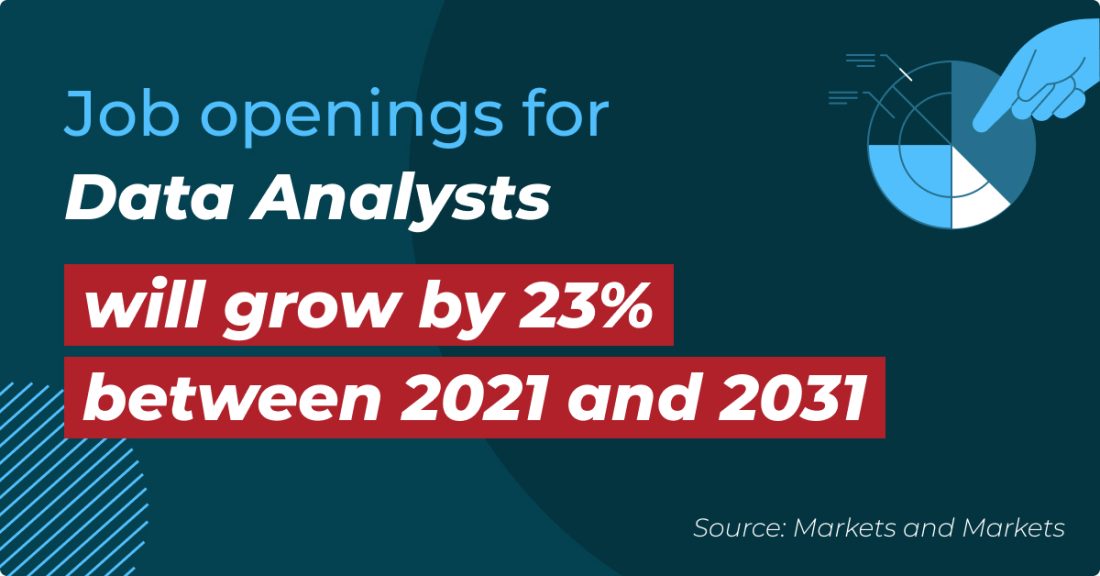
So, what is all this data fuss about? Let’s dig a bit deeper to understand more.
The Importance of Data Analytics in Business
Before we dive deep into the importance of data analytics, let’s just quickly cover the basics and understand what exactly data analytics is. Put simply, data analytics is the process where you look at huge chunks of data to find patterns, connections, and insights that can help businesses make informed decisions. It utilizes a wide range of methodologies and techniques, including statistics, statistical analysis, data mining, and machine learning to examine and evaluate data.
By harnessing the power of data analytics, businesses can unlock hidden patterns, spot emerging trends, and gain a deeper understanding of their customers and market dynamics. This valuable knowledge enables companies to make data-driven decisions that drive growth and innovation.
But does that really work? Absolutely. In fact, large companies and unicorns like Amazon, Facebook, and Google have achieved tremendous success by using data analytics to drive their business decisions. However, data analytics is not just for big players. Small and medium-sized enterprises can also profit from utilizing data analytics to make knowledgeable business choices and stay competitive.
So, how exactly can businesses utilize this data to drive growth? Let’s find out.
Utilizing the value of Data
Data-driven decision-making is like having a constant guide that provides you with valuable insights and guides you toward success. You can utilize data by identifying different patterns, correlations, and trends.
The abundance of data generated through online activities, customer interactions, and internal processes presents immense opportunities for businesses to gain insights, make informed decisions, and drive growth. But what are the major sources to extract these data? Well, data can be obtained from diverse sources. Great examples include:
- Customer interactions: Customer data can be collected through various touchpoints, including website visits, social media interactions, surveys, and purchase histories. This data provides valuable insights into customer preferences, behavior patterns, and demographics.
- Operational data: Organizations generate vast amounts of operational data through their day-to-day activities. This includes data from manufacturing processes, supply chain management, inventory management, and employee performance metrics.
- External data: Data can also be obtained from external sources such as market research reports, industry databases, government databases, and public datasets. These sources provide valuable information about market trends, competitor analysis, and economic indicators.
There are so many business titans who use these data sources to drive business decisions. One such giant is the e-commerce brand Amazon. Amazon is renowned for its data-driven approach to business decisions. Through its vast customer database, Amazon analyzes browsing and purchase history to recommend personalized products to individual customers. This data-driven recommendation system has contributed significantly to Amazon’s exponential growth, with a substantial portion of its sales attributed to these personalized recommendations. And it’s not just Amazon, there are several other organizations like Netflix, Uber, Walmart, etc.
Embracing data as a strategic asset and investing in data analytics capabilities can clearly pave the way for success in today’s data-driven business landscape, therefore. It’s like having a crystal ball that helps you make informed decisions instead of relying on guesswork. So, with that said, what data analytics skills do you need to make this happen?
The Data Analytics Skills Businesses need
First off, it’s important to recognize that data analytics goes beyond a mere collection of technical skills. To truly harness the power of data and leverage it for business purposes, a well-rounded skillset that combines technical expertise with human skills is required.
Technical skills:
- Proficiency in SQL, Python, R, Tableau, and other data analysis software: These tools are the bread and butter of a data analyst, allowing them to efficiently extract, manipulate, and analyze data.
- Data manipulation and cleaning: Cleaning and transforming raw data into a usable format is crucial for accurate analysis and insights.
- Statistical analysis and modeling: Understanding statistical concepts and applying them to data sets helps uncover patterns, relationships, and make predictions.
- Data visualization and reporting: Visualizing data through charts, graphs, and reports helps communicate insights effectively and aids decision-making.
- Knowledge of machine learning algorithms: Familiarity with machine learning techniques enables data analysts to build models for predictive and prescriptive analytics.
- Database management: Handling databases efficiently, including data storage, retrieval, and optimization, is essential for managing large datasets.
- Data mining and data wrangling: Extracting valuable information from complex datasets and preparing them for analysis requires data mining and wrangling skills.
- Understanding of data warehousing concepts: Knowledge of data warehousing principles and practices helps in structuring and organizing data for efficient analysis.
- Familiarity with big data technologies (e.g., Hadoop, Spark): As data volumes grow, familiarity with big data technologies becomes vital for processing and analyzing massive datasets.
Human skills:
- Effective Communication: Communication skills are essential for data analysts as they collaborate closely with diverse teams, including developers, operations, and management, to ensure effective information exchange.
- Collaboration: As a data analyst, you need to work closely with cross-functional teams to ensure smooth and efficient software delivery and successful project outcomes.
- Critical thinking and problem-solving abilities: Data analysts need to think critically to solve complex problems, identify patterns, and make informed decisions based on data.
- Adaptability: The dynamic nature of the data analytics field demands that data analysts possess adaptability, embracing new tools, and staying up-to-date with evolving technologies to stay ahead in the fast-paced environment.
- Presentation skills: Presenting data visually and creating compelling reports enables data analysts to convey insights in a visually appealing and impactful way.
- Ethical and responsible data handling: Upholding ethical standards and ensuring responsible data handling practices are fundamental to a data analyst’s role. They prioritize data privacy, adhere to ethical guidelines, and implement robust security measures to protect sensitive information.
Businesses need a multidimensional skillset in data analytics to harness the full potential of their data. To ensure they have the right talent, businesses are heavily investing in data analytics professionals who’ve got the necessary skills to convert their data. So, if you’ve been thinking of getting into data analytics, now is a very good time.
How to build data analytics skills and start making data-driven decisions
In order to thrive as a data analyst, you’ll need to equip yourself with the required skill set. But how do you do that? A lot of people think that a college degree in data science is the only way to break into the field of data analytics, which is simply not true! In fact, most recruiters hire candidates who have the required skills for the role, irrespective of their college degree. They prefer candidates who have demonstrated skills in their resumes and have trained themselves in specific skills via industry-recognized certifications. Online certifications that offer hands-on practical experience and knowledge can help you build the necessary skills and break into the field of data analytics without any college degree.
So how do you get started if you’re a beginner? To start your journey, you can begin by mastering the fundamentals with courses that provide an introduction to data analysis, where you’ll gain a solid understanding of data analysis principles and techniques. You can then take up a course on statistics, followed by courses on Python, data visualization tools, SQL, etc.
With the help of these Data Analytics Courses Certificate, you can gain relevant skills and knowledge and get started as a data analyst. Once you’ve got the required skills, you can then look out for projects to demonstrate your skills. You can also intern with companies initially to gain experience and then start off as a professional data analyst. Also, it is essential to always keep yourself updated with the latest industry trends and emerging technologies. Remember, the key is to continuously learn and adapt to the evolving data landscape.
Next steps
The power of data analytics in driving business decisions cannot be overstated. As businesses continue to amass vast amounts of data, the demand for skilled data analytics professionals will only increase. Organizations need professionals who can navigate the complexities of data, transform it into actionable insights, and drive data-driven decision-making throughout the organization. So, by equipping yourself with the right skillset via certifications, you can position yourself as a successful data analyst.
If you would like to know more about how you can build skills and get started as a cloud security professional, contact our Learner Support Team at [email protected]. They will be more than happy to guide you on the next steps you can take.
SkillUp Online
